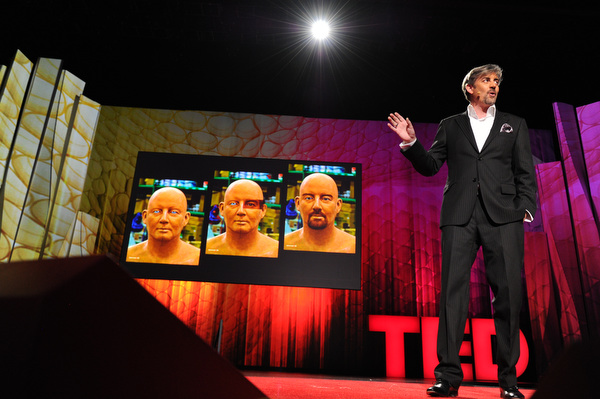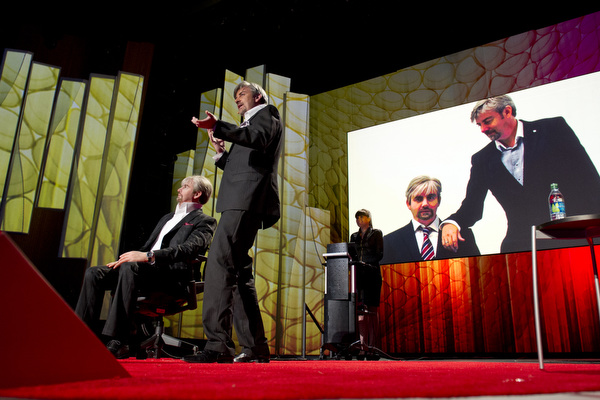Photos: James Duncan Davidson
“So I have this android copy of myself,” says Henrik Schärfe drily. You know. As you do.
But first, Schärfe wants to share a personal story, of waking up one dark November night to the police at his door, informing him of an accident in which his parents had both been killed. “I knew what was going on but it didn’t make sense,” he says. It was only later, through the help and insight of his friends, family and neighbors, that he learned to understand what was going on. And, he says, building, designing and creating an android robot has helped him to more deeply understand how the world really works. Such questions drive his entire work.
Now, Schärfe’s doppelgänger, Geminoid-DK, is brought out on stage. DK is seated, and the pair proceed to banter, with the robot outlining some of the things that the pair’s research has revealed since its inception: that if the context is real, it turns out that people are very tolerant of androids; that age affects the way humans and robots interact, and finally, that gender affects perception of androids. Women, apparently, are more sensitive to shortcomings in the design than men.
What this is not about, says Schärfe firmly, is about replacing the human being. Technology is amazing, and can do amazing things, but “robonirvana” cannot be our goal. Not least because bad experiences help us connect and understand each other just as much as our happiest moments. Real Schärfe refers to a scar he has on his hand. DK has it too, but only Real Schärfe has the memory of the accident that caused it — and the memory of the lengthy healing process. It is these such stories that add up to what’s actually important.
Nonetheless, he says, robots can help us to learn about humanity, about insight and about the ways in which we relate to our fellow humankind. He concludes with a touching story of sitting in his lab, where he sometimes looks across the table to see DK in front of him. “I laugh a little bit,” he says. “But you know what it is I see? Myself? No. From time to time, I catch a glimpse of my father.” Schärfe’s father had been blind, and DK’s eye movements resemble his dad. “I see him,” says Schärfe. “And I remember–and that makes me happy.”



Comments (1)
Pingback: Robot doppelgänger at TED hits the Uncanny Valley? | Imaginary Foundation